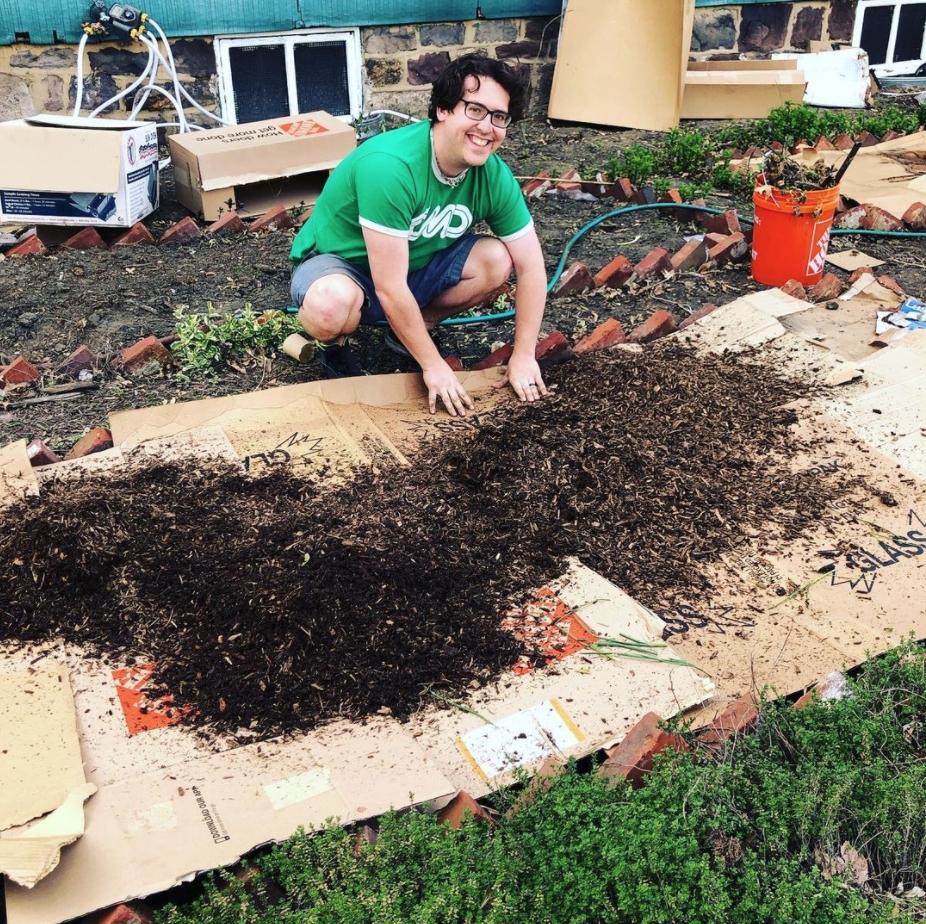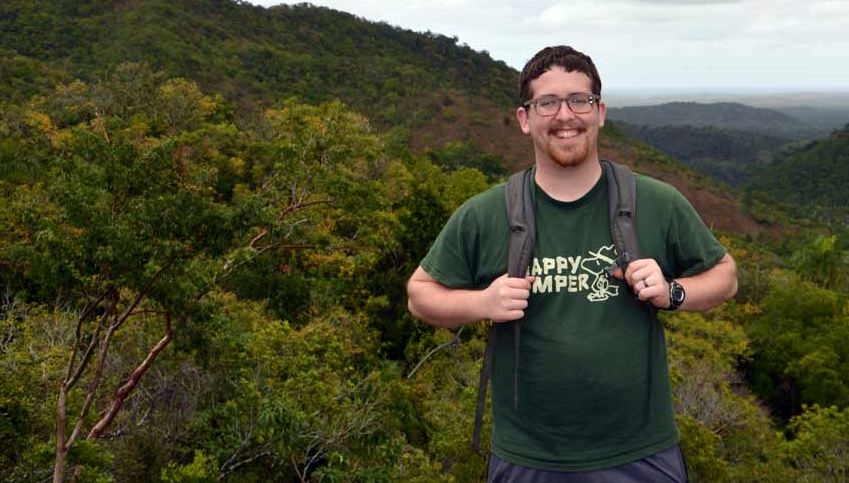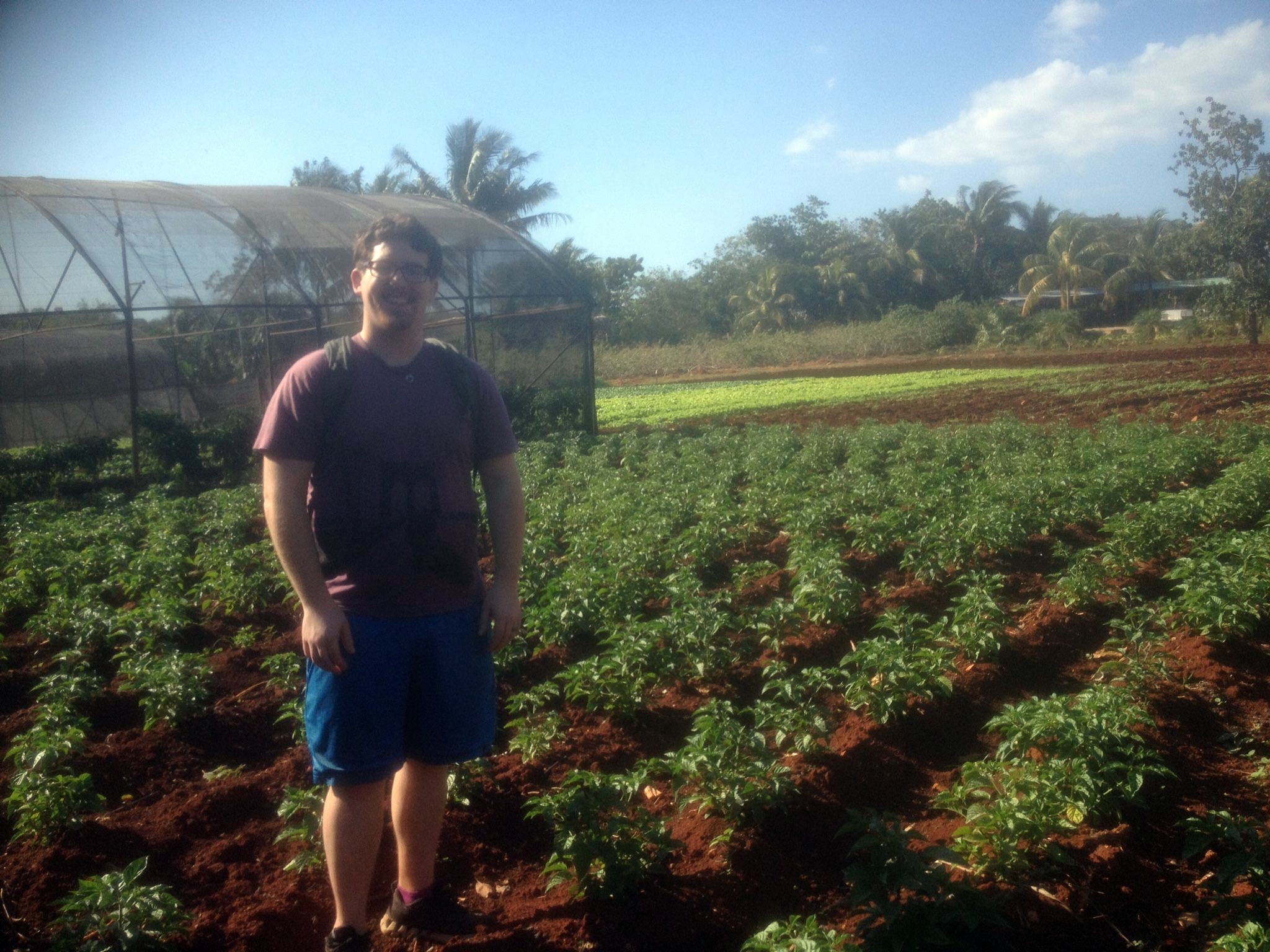Ph.D. Student Leads Camden’s Return to Urban Gardening Roots
Looking at the City of Camden, says Lew Bivona, its reputation as the community gardening epicenter of the Garden State, let alone the country, may not be outwardly obvious.

Bivona founded the Camden Urban Agriculture Collaborative in 2018 to bring together community organizations and gardeners dedicated to pooling resources, advocating for urban agriculturally friendly policies in Camden, and identifying opportunities to deepen collaboration.
However, explains the Rutgers University–Camden doctoral student, there was a time when the city may have actually held the unofficial title. He cites a 2010 report from the University of Pennsylvania that led its authors to suggest that Camden growers may have created more community gardens per person than any city in the United States.
“The city’s rich legacy of gardening was built on maintaining cultural and historical ties,” says the Ph.D. student in public affairs. “Many gardeners had grandparents who were sharecroppers and much of the food produced was mutually shared among neighbors.”
Fast forward 10 years later, says the Gloucester City resident, the rapidly aging gardener population has been greatly reduced and community garden culture has shrunk along with it.
But make no mistake, says Bivona, Camden is now poised to return to its flourishing, gardening roots, with the help of the Camden Urban Agriculture Collaborative (CUAC). The Cherry Hill native co-founded CUAC – pronounced “quack” – in 2018 to bring together community organizations and gardeners dedicated to pooling resources, advocating for urban agriculturally friendly policies in Camden, and identifying opportunities to deepen collaboration.
He explains that CUAC received a 2020 USDA Urban Agriculture and Innovative Production (UAIP) grant to establish new branches of growth. First and foremost, “garden hubs” are being created throughout the city where residents can acquire tools and supplies, take classes, and learn about gardening first hand.
“The idea is that, if you live in Camden, you would be no more than a 10-minute walk from one of these hubs,” says the Rutgers–Camden doctoral student.
The UAIP grant also establishes an urban agriculture apprenticeship program to elevate gardeners’ growing practices to more intensive levels. Learned skills will include community organizing, financing, and entrepreneurship.

Bivona explains that urban agriculture has the ability to build communities - and foster community resilience - around food.
“We don’t want to be too restrictive about how these apprentices might want to use these skills in their career,” says Bivona. “We just want to set them up with the skills and knowledge for the opportunities that most interest them.”
The program will onboard three apprentices in the first year, five in the second year, and seven in the third year. The apprentices will mentor each other as they proceed further into the program.
“It’s the opportunity for them to be the teachers, as well as the learners,” says Bivona.
The grant also establishes a unified outreach and promotions platform, in order to promote the benefits of urban gardening more than ever before.
Bivona explains that urban gardens can serve an obvious economic purpose, creating linkages from local producers to supermarkets, and promoting a “buy local” model in place of imported goods.
“There is a lot of potential to grow food with vacant land that could be utilized,” he says. “If production ramps up, a lot of food can be produced and a large portion of Camden could be fed this way.” Just as importantly, he says, urban agriculture has the ability to build communities – and foster community resilience – around food.
“There is a lot of potential in centering the community around food – something that communities used to be built upon until the late 1800’s,” he says.
Bivona further notes that CUAC has enabled Rutgers–Camden to bring together typically disparate community organizations to realize the benefits of outdoor activity – an underlying social determinant of health that is often overlooked – and its connection to proper nutrition. On a personal level, he continues, it helps people to realize the connection to nature in an urban setting.

Bivona on a trip to Cuba to study urban agriculture
“It enables people to engage with plants and animals in a way that is more than just watching weeds grow through the sidewalk,” he says. “Studies have shown that the more exposure one has to nature, especially in the early formative years, the more likely they are to care about it later in life.”
Bivona posits that this educational aspect is especially important in an agricultural system that requires change. Agriculture, he explains, is the number one source of biodiversity loss globally and a major percentage of emissions are attributed to the production, distribution, and processing of food.
“You aren’t going to change all that with local agriculture, but what you do get is a pathway to expose people to thinking about those issues,” he says. “Ultimately, that is the pathway to demanding a better system.”
Bivona recalls that he first realized the importance of urban agriculture while pursuing his bachelor’s degree in community and environmental planning at Rowan University. He then supplemented his expertise with dual master’s degrees in political science and community and regional planning at Rutgers University-New Brunswick. During that time, he gained firsthand experience in urban agriculture and community greening efforts working for PowerCorps Camden – a nonprofit dedicated to solving environmental challenges in the city.
In fall 2016, during his first semester in Rutgers–Camden’s Ph.D. program, Bivona was tasked with researching, developing, and pitching an innovative community development initiative for a class project. He and his classmates used the project as an opportunity to interview key urban agriculture stakeholders in Camden who had missed out on substantial grant awards and bulk purchasing savings. They soon discovered a “red flag” – although they had written compelling grants, they had lacked collaboration among one another.
Bivona later leveraged his Camden connections in urban gardening, as well as contacts made via his doctoral research, to bring together organizations in the hopes of securing larger, competitive grants. The result is the Camden Urban Agriculture Collaborative.
One of the primary goals of the collaborative, says Bivona, is to restore that legacy of community gardening in Camden being completely resident-driven.
“All of the grant activities,” he says, “are building toward that objective.”


